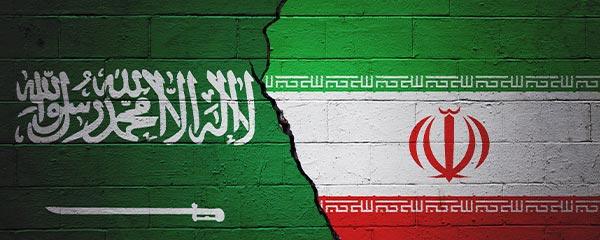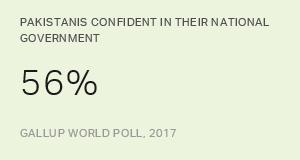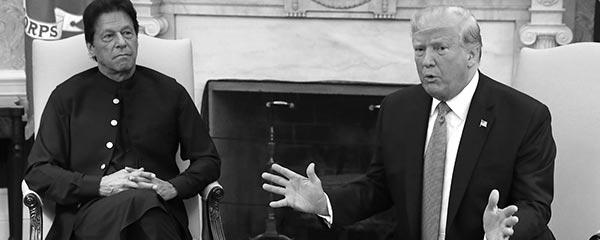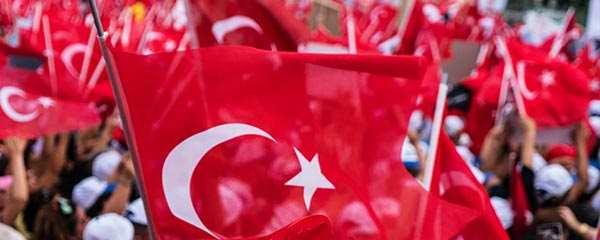Story Highlights
- Perceptions of corruption in Pakistan hit record highs
- Living standards plummet as millions struggle to meet basic needs
- Sindh province hit hardest by economic slump
WASHINGTON, D.C. -- In the lead-up to last week’s arrest of Pakistan’s former prime minister, Imran Khan, on corruption charges, the percentages of Pakistanis who perceived corruption to be widespread in the country’s government (86%) and businesses (80%) had reached record highs.
Khan’s arrest -- which spurred violent, deadly protests across the country -- has since been ruled illegal by Pakistan’s Supreme Court, and Khan is out on bail.
Quick Summary: The recent political turmoil has emerged amid a long-running economic crisis in Pakistan. Khan, a former cricketer and philanthropist, rose to power on an anti-corruption platform in 2018. He was subsequently ousted in a parliamentary vote of no confidence in early 2022, triggering more political and economic upheaval. No democratically elected prime minister has ever completed a full five-year term in Pakistan’s 75-year history.
In recent years, Pakistan’s economy has seen record inflation, soaring commodity prices, and significant declines in foreign investment and remittances. Catastrophic floods in the latter half of 2022, partly overlapping the timing of ║┌┴¤═°’s fieldwork in Pakistan, also caused an estimated $15 billion in economic losses.
Khan’s arrest -- and the subsequent civil unrest it sparked -- have added to the economic misery, as the rupee’s valuation against the dollar dropped to a historic low. Recent mass protests coupled with an ongoing constitutional crisis have compounded the already chronic sense of instability in the South Asian nation and have made its efforts to avoid a sovereign default more precarious.
Pakistanis Pessimistic That Living Standards Will Improve
At the start of Khan’s term in 2018, Pakistanis were far more likely to think their living standards were getting better (49%) than getting worse (20%). Pakistanis’ outlook has worsened every year since; fast forward to the most recent measure, and the tables have flipped. In 2022, 19% said their living standards were improving, and 48% said they were getting worse.
Over the same period, Pakistan has seen one of the largest drops worldwide (30 percentage points) in the percentage of adults saying their living standards are improving.
Perceptions of local economic conditions have followed a similar trend. The 16% of Pakistanis who said their local economy is getting better is one of the lowest points on record. Except for Afghanistan, where the economy has crumbled since the Taliban’s takeover, Pakistan ranks lower than all other countries in the Asia-Pacific region in perceptions of improving economic conditions.
The spiraling economy has left millions struggling to meet their basic needs. More than four in 10 Pakistanis (44%) said they found it difficult to afford food at times in the past year, with Pakistani women (51%) more likely to be affected than men (36%). The proportion of Pakistanis who struggled to afford shelter also shot up in 2022 to 32%, one of its highest points on record.
The economic downturn is being felt hardest in the southeastern province of Sindh, where a mix of high vulnerability to climate change and decades-long rule by the feudal dynasty of the Pakistan People’s Party has contributed to its lagging behind Pakistan’s other provinces.
Bottom Line
Pakistan has been embroiled in political and economic crises and has suffered from devastating floods that displaced around 8 million people in 2022. The country is on the brink of default, and its future is deeply uncertain. Khan’s arrest has created the most widespread public anger since the assassination of Benazir Bhutto in 2007 and has widened the gulf between civil society and state institutions.
Pakistan's democracy has proven resilient since the country’s return to civilian rule in 2008, but it now faces one of its toughest challenges to date. General elections are planned for later this year, yet opposing sides have been unable to agree on dates. As long as a sustainable political solution remains elusive, Pakistan’s leaders are unlikely to be able to improve the quality of its people’s lives or change the widespread perception that they live in a corrupt system.
To stay up to date with the latest ║┌┴¤═° ║┌┴¤═° insights and updates, .
For complete methodology and specific survey dates, please review .
Learn more about how the works.




